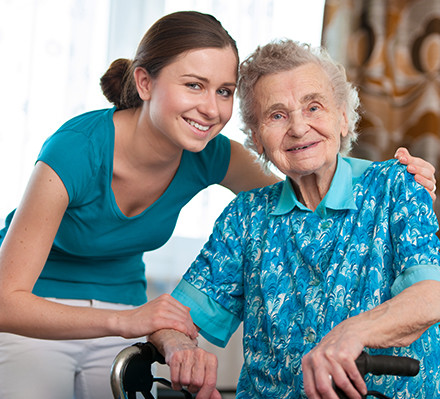What is Dementia?
Dementia is an umbrella term for a number of progressive conditions affecting memory and cognitive function. It is not a normal part of aging, and it is more than ‘just being a bit forgetful’ (which IS a normal part of aging).
Alzheimer’s disease is the most common cause of dementia, followed by vascular dementia, dementia with Lewy bodies and fronto-temporal dementia. There are a number of less common causes of dementia and some people have more than one form at the same time. This is called ‘mixed dementia’.
Dementia often develops slowly and is not always obvious in the early stages. Sometimes it can be difficult to tell apart from the mild forgetfulness seen in normal aging. It is possible for younger people to have dementia. Dementia that starts before the age of 65 is known as Early Onset dementia.
Getting a Diagnosis
You should see your primary physician if you or your family and friends are worried about any changes in your memory, in your thinking skills, in your ability to carry out daily tasks and in personality. They may be able to reassure you and rule out any other causes of the symptoms, or to refer you to a memory clinic for more tests. If it is the start of dementia it is a good idea to get diagnosed early in order to access memory enhancing drugs and to plan for the future.
Alzheimer’s Disease is the most common form of dementia. It was first observed by Dr Alois Alzheimer in 1901. It is a progressive illness caused by chemical changes in the brain that allow abnormal proteins to build, forming clumps known as plaques or tangles. The plaques are usually first seen in the area of the brain that makes new memories, and memory loss, or difficulty remembering words, is often one of the earliest symptoms.
Typical symptoms of early Alzheimer’s include:
- Regularly forgetting recent events, names and faces
- Regularly misplacing items or putting them in odd places
- Confusion about the time of day
- Disorientation, especially away from normal surroundings
- Getting lost
- Problems finding the right words
- Mood or behaviour problems such as apathy, irritability, or losing confidence
Treatment
There is currently no cure for Alzheimer’s disease. However, drugs are available that can slow down symptoms in some people.
Vascular Dementia
Vascular dementia is caused by blood flow to the brain being reduced. It may occur as a result of a stroke, which can cause memory loss as well as difficulties in moving, speech and sight. Multi-infarct dementia is caused by a series of small strokes in the brain.
Sub-cortical vascular dementia is caused by a series of small injuries to blood vessels deep inside the brain. Over time many of these injuries gradually damage parts of the brain that are important for attention, memory and language.
Symptoms of vascular dementia can appear gradually or suddenly depending on the cause. They include:
- Becoming slower in thinking
- Disorientation, especially away from normal surroundings
- Difficulty finding words
- Memory problems like regularly misplacing items
- Becoming more emotional
- Difficulty walking or a change in the way a person walks
Treatment
Although the brain damage that causes vascular dementia cannot be reversed, it may be possible to slow the progression of the disease by:
- taking medication to treat any underlying conditions, such as stroke, high blood pressure, high cholesterol, diabetes or heart problems
- adopting a healthier lifestyle by stopping smoking, taking regular exercise, eating healthily, and drinking alcohol only in moderation
- rehabilitative support, such as physiotherapy, occupational therapy and speech therapy
Dementia with Lewy bodies
Dementia with Lewy bodies is caused by small clumps of protein that build up inside nerve cells in the brain, damaging the way they work and communicate with each other. These are named Lewy bodies after Dr Frederich Lewy, who first identified them.
Symptoms include:
- Hallucinations which often involve people or animals
- Parkinson’s-type symptoms including slow movement and stiffness in the limbs
- Movements during sleep and vivid dreams
- Symptoms similar to Alzheimer’s, including memory loss and disorientation
- Fainting and falls
- Marked variation in alertness and confusion, which can fluctuate from hour to hour or day to day
Treatment
Like other types of dementia there is no cure for LBD. Some of the Alzheimer drugs may be suitable for people with Lewy body dementia, but particular care has to be taken by doctors as some are unsuitable for people with LBD.
Front-temporal dementia
The front-temporal dementia is a less common cause of dementia, and one that often affects younger age groups. It includes a range of conditions in which there is damage is to the front and sides of the brain and affects personality, emotions, decision-making, speech and language. It used to be known as Pick’s disease.
Symptoms can include:
- Personality changes, such as loss of inhibition, apathy or inappropriate behavior of which the person is often unaware
- Loss of emotional warmth and empathy for others
- Decline in language abilities – including difficulty getting words out or problems with understanding words and names
- Overeating or changes in dietary preference, particularly cravings for sweet food
- Changes in sexual behavior
- Memory problems. Although day to day memory remains intact in the early stages, communication difficulties mean the problems seem more severe
Treatment
Alzheimer’s drugs such as Aricept may occasionally make symptoms worse and increase aggression. Speech therapists may be helpful for language problems.
However, knowing more about the disease and understanding that it is the cause of behavior changes can help the person – and those around them – to cope with the disease. Coping strategies include avoiding confrontation and working round obsessions rather than trying to change the person’s behavior.









